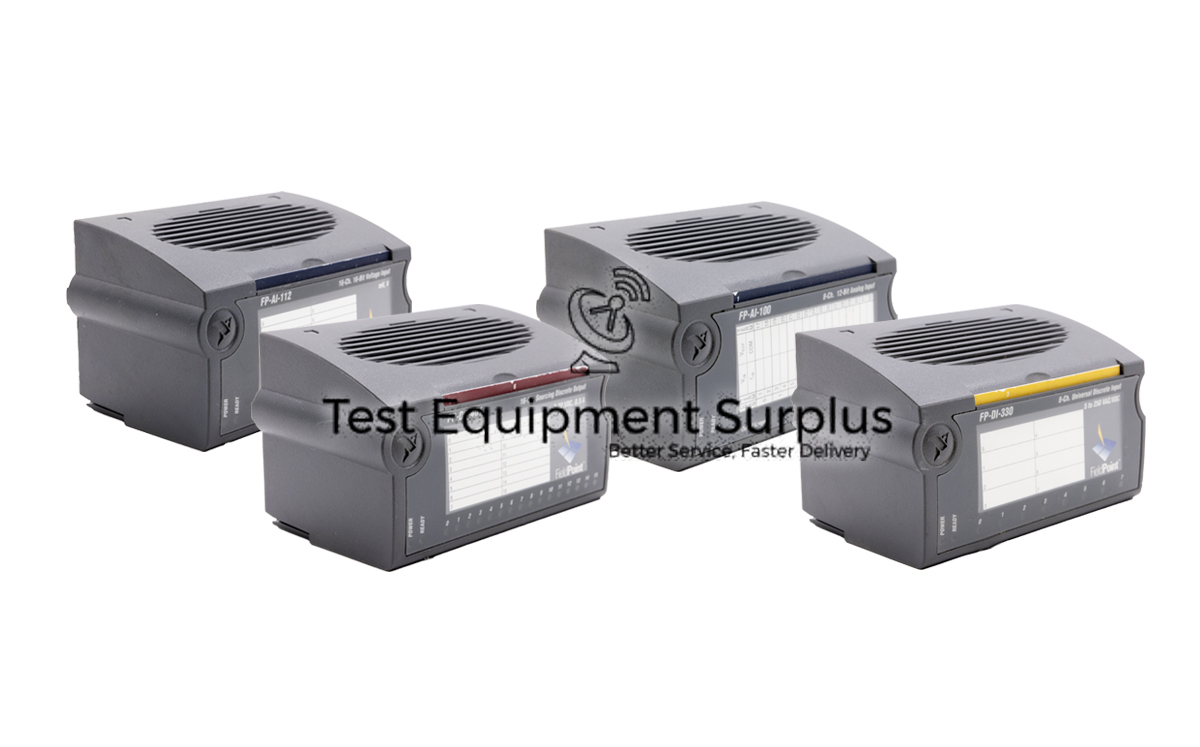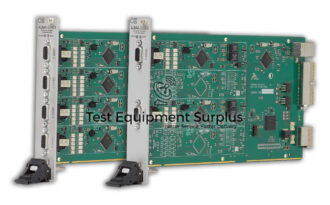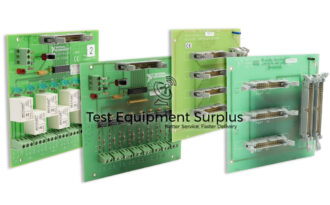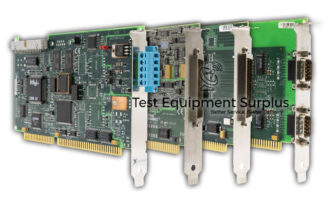Description
The National Instruments FP-1601, part number 777792-01, is an advanced FieldPoint Ethernet Interface designed to connect up to 9 I/O modules to a 10/100 Ethernet network, ensuring high-speed data communication rates up to 100 Mb/s. This robust device features event-driven communication protocols, LED indicators for status information, and DIP switches for various functions, all powered within a supply range of 12 to 30 VDC.
Automatic connection speed detection simplifies setup, while compatibility with LabVIEW RT enabled devices or host computers provides versatile use cases. A single communication port facilitates the event-driven protocol, and the device’s design includes a power consumption formula of 4.5 watts + 1.1 * Σ(I/O Module Consumption), indicating efficiency and adaptability in its power usage.
| Specification | Detail |
|---|---|
| Part Number | FP-1601 |
| National Instruments Part Number | 777792-01 |
| Type | FieldPoint Ethernet Interface |
| Manufacturer | National Instruments |
| Network Connection | 10/100 Ethernet |
| Maximum Number of I/O Modules | 9 |
| LED Indicators | Yes |
| DIP Switches | Yes |
| Communication Protocol | Event Driven |
| Communication Ports | 1 Port |
| Maximum Data Communication Rate | 100 Mb/s |
| Network Interface | 10/100 BaseTX |
| Power Supply Range | 12 to 30 VDC |
| Power Consumption | 4.5 watts + 1.1 * Σ(I/O Module Consumption) |
| Connection Speed Detection | Automatic |
| Bank Log-on Compatibility | LabVIEW RT enabled devices or host computers |
Question 1: Can the National Instruments FP-1601 interface connect more than 9 I/O modules to an Ethernet network, and what is the maximum data transfer rate it supports?
Answer 1: The total power consumption of the National Instruments FP-1601 is calculated using the formula: 4.5 watts + 1.1 * Σ(I/O Module Consumption).
Question 2: Considering the power efficiency features of the National Instruments FP-1601, what is the formula used to calculate its total power consumption?
Answer 2: No, the National Instruments FP-1601 interface is designed to connect up to 9 I/O modules to an Ethernet network, and it supports a maximum data transfer rate of 100 Mb/s.
Question 3: What is the power consumption formula for the National Instruments FP-1601, part number 777792-01?
Answer 3: The National Instruments FP-1601 FieldPoint Ethernet Interface is designed to connect up to 9 I/O modules to a 10/100 Ethernet network, offers high-speed data communication rates of up to 100 Mb/s, features LED indicators, DIP switches, and operates within a 12 to 30 VDC power supply range, with a power consumption formula of 4.5 watts + 1.1 times the sum of the I/O Module Consumption.
Question 4: What are the capabilities and power requirements of the National Instruments FP-1601 FieldPoint Ethernet Interface, and how do these features contribute to its efficiency and adaptability in connecting I/O modules to an Ethernet network?
Answer 4: The National Instruments FP-1601 FieldPoint Ethernet Interface is capable of connecting up to 9 I/O modules to a 10/100 Ethernet network with data communication rates of up to 100 Mb/s, featuring LED indicators for status, DIP switches for configuration, and automatic connection speed detection for simplified setup. Its power requirements are within a 12 to 30 VDC range, and it has a power consumption formula of 4.5 watts + 1.1 times the sum of
Question 5: What are the key features and specifications of the National Instruments FP-1601 FieldPoint Ethernet Interface, including its connectivity capacity, data communication speed, and power consumption formula?
Answer 5: The power consumption formula for the National Instruments FP-1601, part number 777792-01, is 4.5 watts + 1.1 times the sum of the power consumption of the connected I/O modules.




